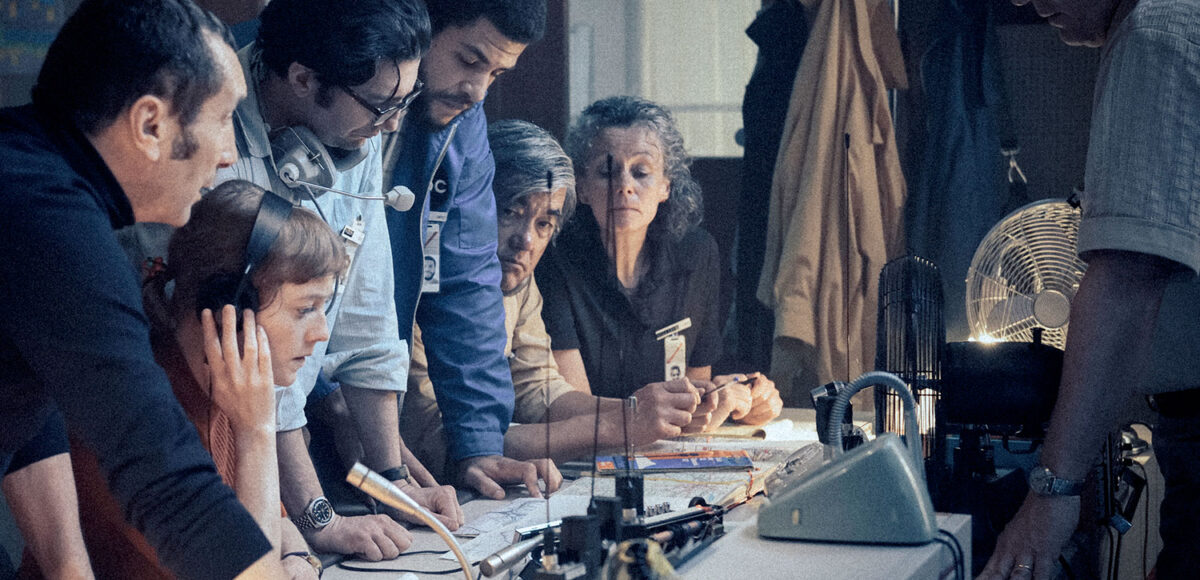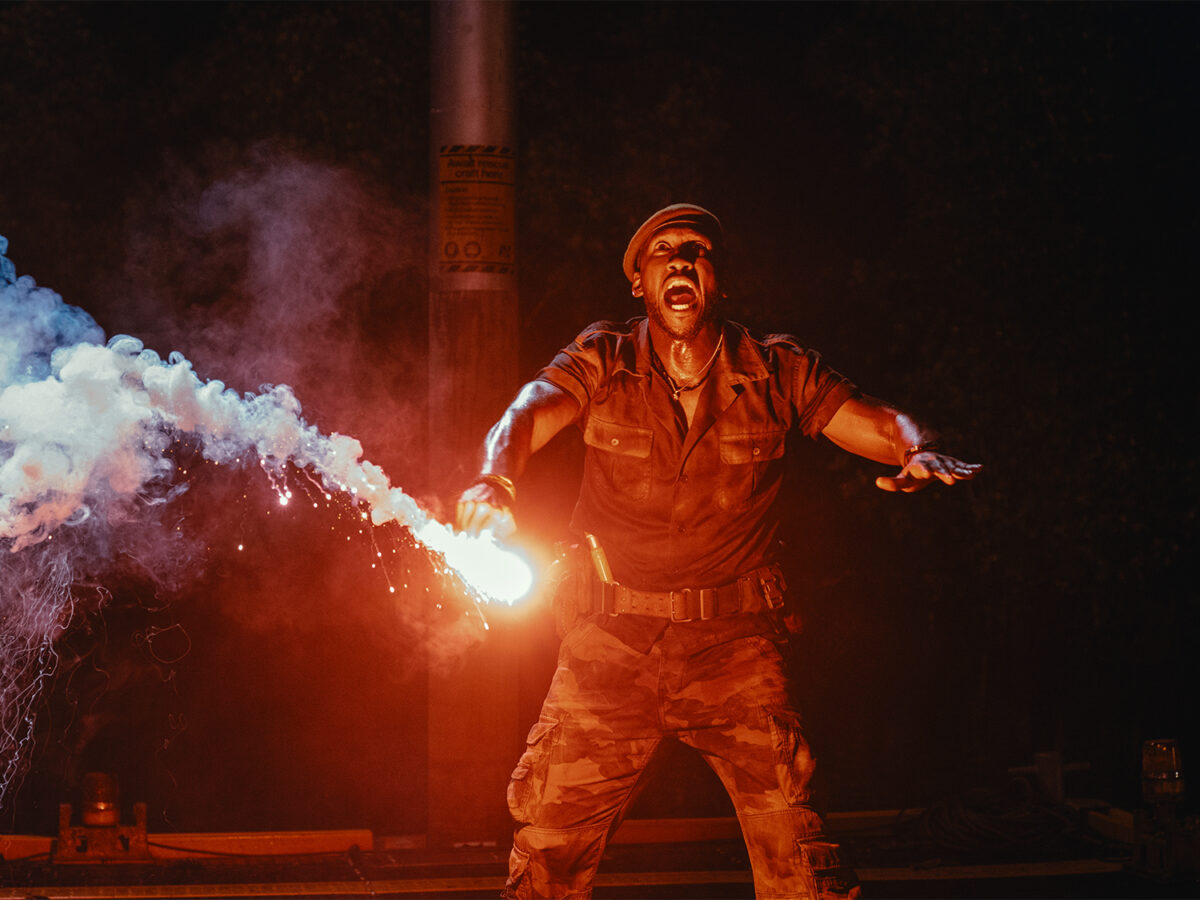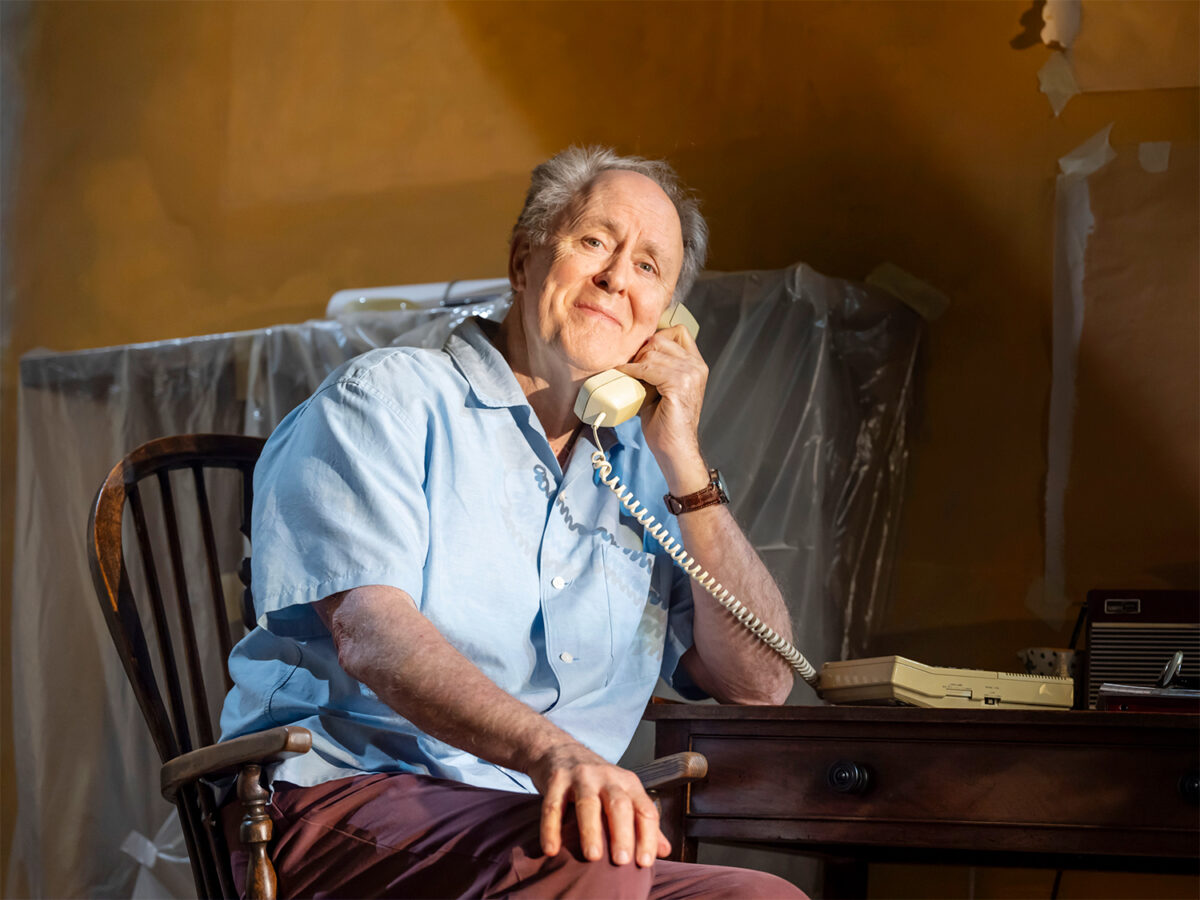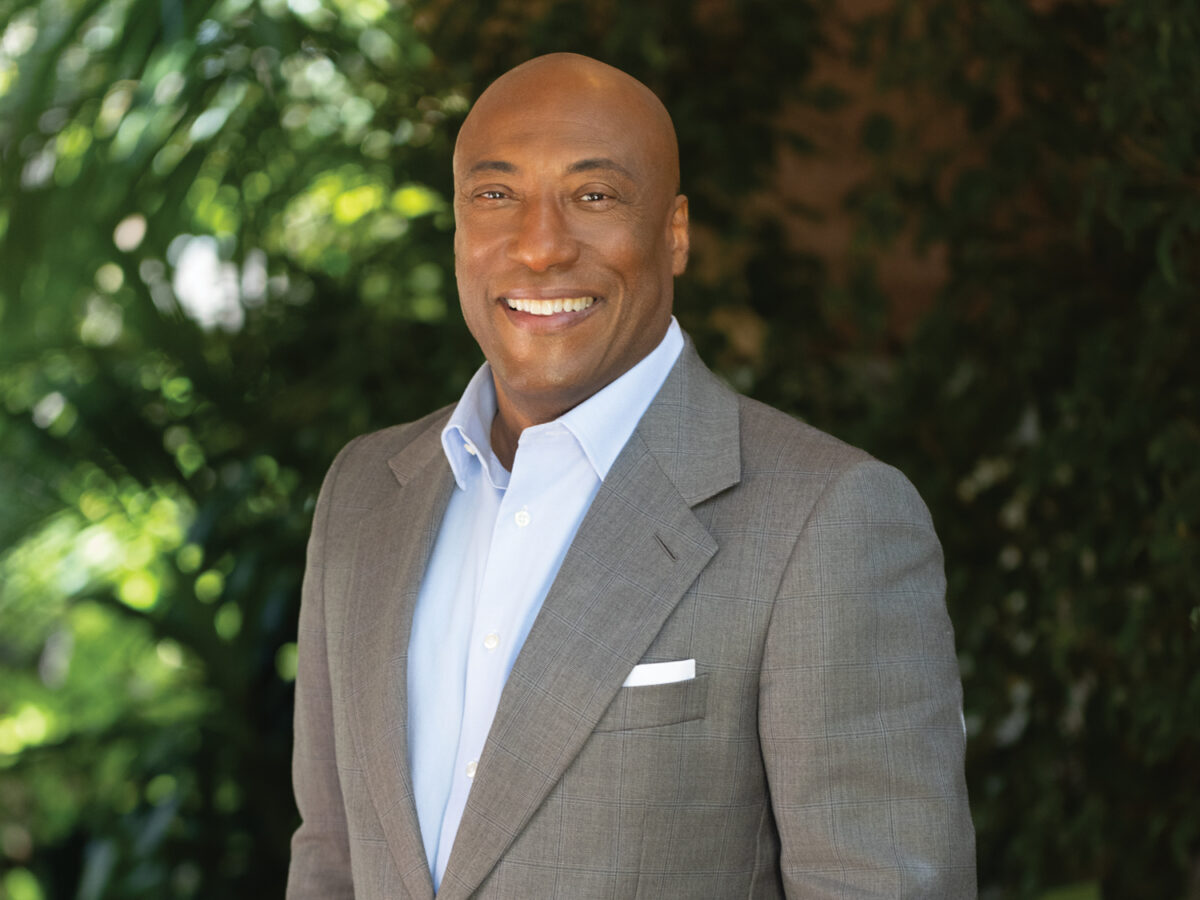Move in on a reel-to-reel tape deck being threaded by hands that then turn to the next deck and the pins and heads, pinch rollers being threaded as tension arms are snapped up. Follow that with a closeup of a soundboard as the myriad switches are adjusted while the meter measures the decibel level and focus next on a bank of monitors, some of which reveal an empty anchor chair and others the hillside out the door. The motors are whirring, the wheels are turning, it’s fast, fast, fast. You are there, watching as the cameras and equipment are pushed into place, both inside and out, as they are being readied for the first live broadcast of the Olympic Games from Munich. The date is September 5, 1972 and overseeing it all is the boss, the not-yet-legendary but still intimidating Roone Arledge, as he prepares his ABC crew to make sure everything is in place. So begins “September 5” as the camera pans over the controlled chaos in the makeshift studio as he leaves the final preparations in the hands of Geoff Mason, the young production protégé of Marvin Bader, master producer, there to make sure the transition goes smoothly. Boots on the ground, Jim McKay is in the anchor seat, ready with his personal profiles of star athletes from around the world and his coverage of the events themselves; star newscaster Peter Jennings is in the Olympic Village taking the temperature of the international delegations.
In the makeshift control room, the crew and producers banter back and forth as they watch Mark Spitz on screen winning his unprecedented 7th Gold medal as the German competitor cowered in a corner, crestfallen to have lost his favored event. Comments go back and forth about whether this so-called new Germany on display is only a thin veneer over its Nazi past. Bader’s comments are especially sharp as he’s from a generation where parents and siblings fought and other relatives died in camps. Taking offense is Marianne Gebhardt, their German interpreter, who says that much has changed. “Do your parents still say they knew nothing about what went on?” Bader remarks sarcastically. “We are not our parents’ generation,” she retorts. What starts out looking like a behind-the-scenes story about a sports broadcast will soon become something else entirely, an event that anyone old enough to watch the games that year will remember in an instant.
The scene is set, the players are in place. This unprecedented live-action coup is about to begin when shots are heard; not by everyone so they can’t yet be verified. But then they are and all hell breaks loose. Unconfirmed rumors start circulating that an incident has occurred somewhere in the Olympic Village, specifically in the rooms assigned to the Israeli contingent. Marianne is called on to translate what she is hearing from a police bandwidth. Soon, the worst news imaginable will be confirmed by a coach of the Israeli team who was able to escape. Terrorists have taken the team hostage, vowing to kill one person per hour if Israel doesn’t release 200 prisoners held in Israeli jails.
And so begins the action, where, ironically, the plight of the hostage athletes takes a back seat to getting the story. The German police had not secured the village and now, too late, they were flooding the grounds like gulls fighting over a single crumb. It is apparent they have no idea what they are doing or how to negotiate with the terrorists, a splinter group of the PLO (Palestinian Liberation Organization) called Black September. The German military, trained in sniper actions and containment, are forbidden by their post-war Constitution from taking part in a civilian operation and can only give instructions to the helpless, incompetent and overwhelmed local police.
Knowing that the police will soon sweep all the press from the village, Bader and Mason assess the situation and bring Arledge back from his break to lead them. He tells Jennings to hide from the police, gets the crew to move cameras and sound equipment outside the building to try to angle their shots toward the occupied building and apprises ABC News at headquarters what is happening, telling them in no uncertain terms that he will not relinquish coverage to a news team reporting from the U.S. His sports team, working with Jennings, is in charge and will handle everything. He lets McKay know the situation and tells him to stay stationed in his chair and report what they feed him. It is what so many who lived through that broadcast remember: Jim McKay empathetically reporting on the news as it was happening.
The events occurring moment by moment are orchestrated behind the scenes by Arledge and his team. A cool head, one might almost say icy, Arledge is well aware of what is transpiring, but his primary focus seems to be on delivering the story as those around him, especially Bader, debate the ethics and morality of giving Black September unalloyed attention on screen. It had never occurred to any of them that the terrorists might be watching themselves and the reactions of others on the television in the athletes’ room.
And this is where “September 5” excels, in the moral and ethical gray area. Where does the responsibility for reporting the news and the responsibility for not making things worse intersect or in this case, collide? While telling this story in a straightforward manner, none of those questions are answered. What do you think about their actions? What might you have done differently in hindsight because hindsight is always misleadingly relied on. I have no answers and neither does the film. Did they break barriers? Of course. Was it worth it? There may be no one answer, but after September 5 there was no going back.
Directed by Tim Fehlbaum, who wrote the script with Maritz Binder and Alex David, “September 5” is a gut-wrenching film that flies towards its foregone conclusion. Fehlbaum’s opening on the machinery of production is an unusual sequence that builds speed before any of the main characters are introduced and continues moving forward at a lightning pace as the backstage crew moves the equipment into place and the producers begin interacting with the crew. With the exceptions of Peter Jennings and Roone Arledge, you will be unacquainted with the rest of the players, some of whom existed, Bader and Mason, and some of whom are realistic depictions of who would have been there at the time.
The cinematography by Markus Förderer captures Julian R. Wagner’s claustrophobic production design perfectly. Working in a cramped space, Förderer puts you in the center of the action at all times. Peter Sarsgaard as Roone Arledge captures the quiet intensity of a man who would one day lead ABC News, not just ABC Sports. Looking not at all like Arledge, he still maintains that aura of authority that would lead a team under siege with the sangfroid necessary to go forward as others were questioning the rationale. Leonie Benesch as translator Marianne Gebhardt expresses the ambivalence of what the team is doing ethically as she tries to make sure they are aware of what is being said. Ben Chaplin as Marvin Bader has the gravitas of an elder statesman and the burden of being the moral center during the time the news is being broadcast, seemingly unfiltered, to the world. John Magaro, Geoffrey Mason, is fascinating as he handles the board and gives the orders to a crew working so quickly that they have no time to think about the right and wrong of their actions. Arledge is aware that there will be no going back after this broadcast; Mason, new at his job, doesn’t have the bandwidth to think past the next time cut. The real coup, however, is that Fehlbaum was able to use the actual footage of Jim McKay reporting from the Olympics in 1972. Artfully cut and interspersed, it is the footage of the actual McKay that gives this film its basis in reality, elevating the performers “interacting” with the onscreen McKay to material substance.
The Olympic Games have been filmed and covered for many decades. Leni Riefenstahl’s “Olympiad” chronicled the games held in 1936 Berlin as Hitler stood in the stands to cheer on his chosen Aryans, only to be subverted by the otherworldly feats of American sprinter Jesse Owens. The 1968 Olympics, held in Mexico City, are most remembered for the defiant stance of Tommy Smith and John Carlos who raised black-gloved fists on the winners’ podium to protest discrimination. “September 5” commemorates the games at a very low point in history. It is worth remembering; we should never forget. Already a Golden Globes nominee for Best Motion Picture-Drama, this movie is an unfortunate record that the more things change, the more they remain the same.
Opening Dec. 13 at the AMC Century City 15.
Neely Swanson spent most of her professional career in the television industry, almost all of it working for David E. Kelley. In her last full-time position as Executive Vice President of Development, she reviewed writer submissions and targeted content for adaptation. As she has often said, she did book reports for a living. For several years she was a freelance writer for “Written By,” the magazine of the WGA West, and was adjunct faculty at USC in the writing division of the School of Cinematic Arts. Neely has been writing film and television reviews for the “Easy Reader” for more than 10 years. Her past reviews can be read on Rotten Tomatoes where she is a tomato-approved critic.







